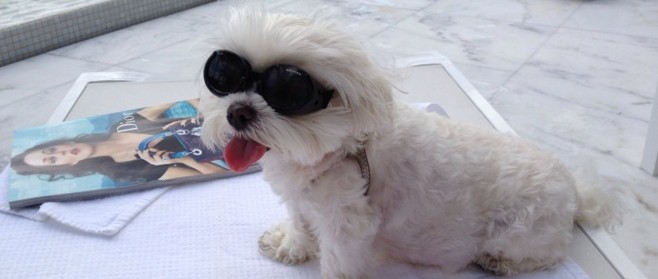
Veterinarians that are in general practice like ours do a little of everything: regular exams and preventive health checks, dermatology, cardiology, surgery, etc. Ophthalmology is one of Dr. Gignac’s favourite areas in veterinary medicine. We are equipped to deal with the most common types of ophthalmological problems seen in by dogs and cats. If your pet requires more advanced care, then we would refer you to a board-certified veterinary opthalmologist.
Please note! There is a shortage of veterinary board-certified ophthalmologists in Toronto at this time. We have been getting many calls lately for ophthalmology appointments, but we would like to stress that we are a general practice clinic. We do not have a board-certified ophthalmologist on site. If you are looking for an appointment with a specialist, please consult your regular veterinarian for assistance.
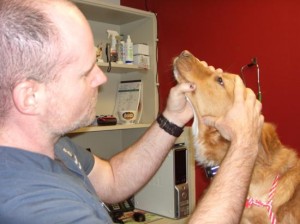 |
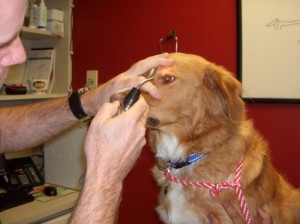 |
There are many different eye problems seen in veterinary medicine, which can affect all the different parts of the eye, including the cornea, iris, lens, retina, and the structures supporting the eye such as the conjunctiva and the eyelids. Some breeds are more prone to certain types of eye problems, such as cataracts, entropion (rolling inward of the eyelids), glaucoma, dry eye (KCS), or corneal ulcers.
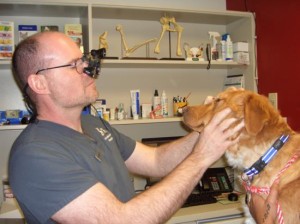 |
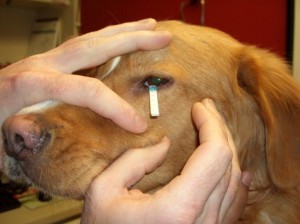 |
A comprehensive eye exam includes a visual inspection of the conjunctiva, cornea, and inner structures of the eye, often with the aid of magnification. Tear testing (determining if sufficient tears are being produced), fluorescein staining (staining the cornea to look for ulcers or scratches), ocular pressure measurement (to test for glaucoma or uveitis), and fundoscopy (examining the retina with special lenses) are all part of a routine ophthalmic evaluation.
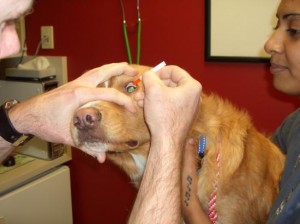 |
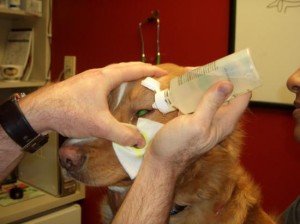 |
Any suspected eye problem should be seen immediately, as it is often impossible to tell the severity of a problem at first glance. Simple problems such as corneal ulcers can quickly become worse, and result in corneal rupture, or even blindness. Glaucoma can cause sudden blindness unless treated very shortly after its onset.
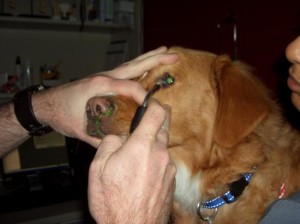 |
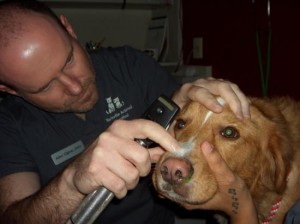 |
Any eye that looks red, cloudy, has a discharge, or is being held shut should be assessed and treated immediately. Please contact our office if you suspect that your cat or dog may be suffering from an eye problem.
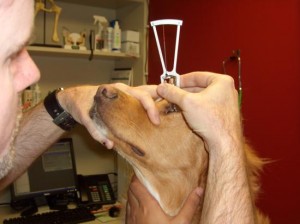 |
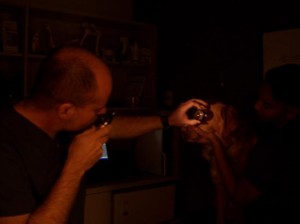 |
